More to Discover
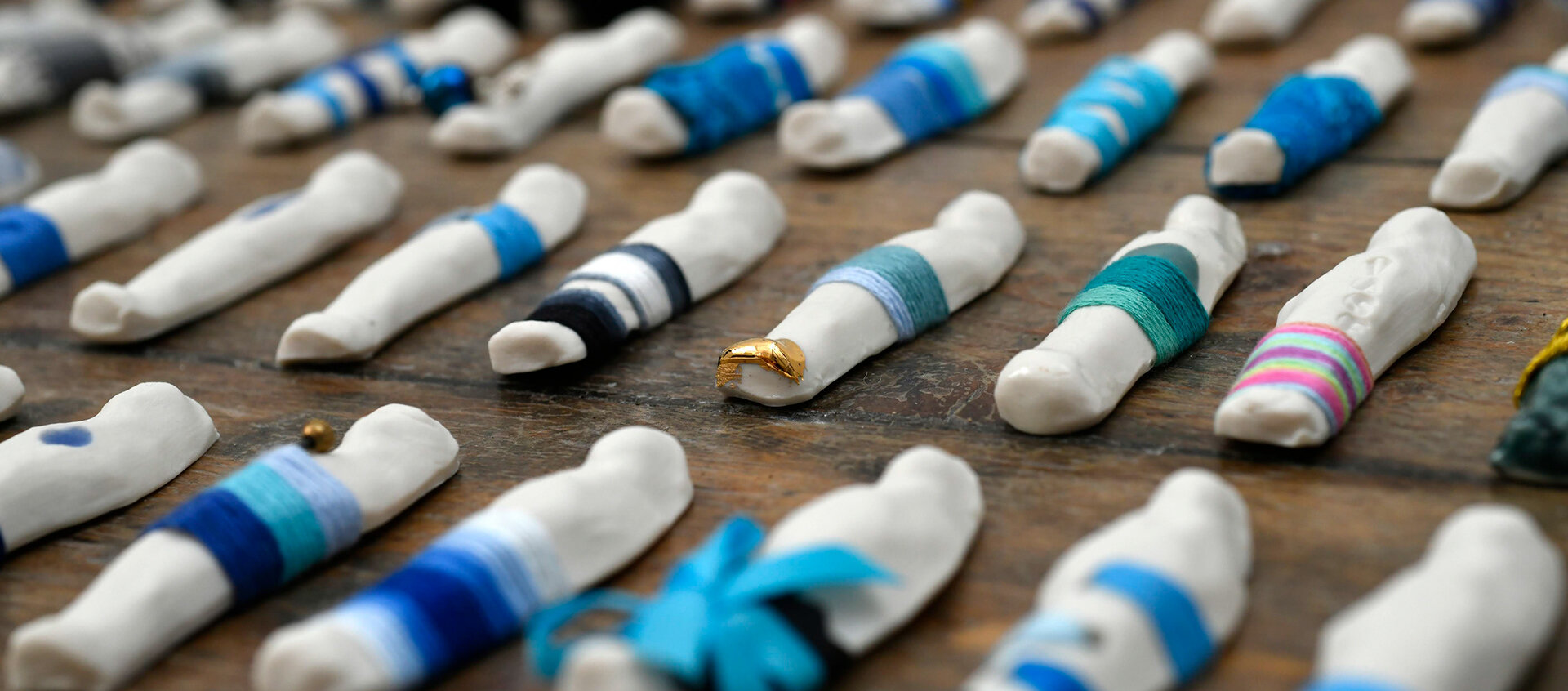
2024 marks the centenary since Andre Breton wrote his Manifesto of Surrealism, a landmark text that remains as relevant today as when it was originally written. The continued influence of Surrealism has offered an exploration of intersectionality, highlighting the movement’s continued ability to both inspire and present a safe space, a marvellous realm on the cusp of dream and reality, a playground for artists.
The collection at Salford Museum & Art Gallery contains a wealth of Surrealist treasures including works by Marion Adnams, Eileen Agar, John Tunnard, Ann Fordham, Allan Milner and Elizabeth Frink. These British Surrealists followed the movement’s concepts, incorporating these themes into their own visual language. The Omnipotence of Dream presents six works carefully selected from the collection, some exhibited for the first time, and presented alongside responses from 16 contemporary artists. At the heart of the exhibition is a solo presentation by David Hancock. Hancock has created a new body of work drawing directly from Salford’s collection.
Since Breton’s Manifesto of Surrealism was published, new technologies allow us to experience alternative realms of the imagination. Cyberspace provides us with opportunities to explore new worlds and experiment with our physical bodies, yet it remains a problematic space where homophobia, transphobia, racism, and misogyny are rife. The world is an irrational and illogical place, aligning with the disorientating realm of the unconscious, which shifts our perceptions of the conscious world.
The Omnipotence of Dream re-examines Surrealism’s problematic past and reframes those methods within current debates around queer, trans and feminist theory. It highlights the vision of autocratic Surrealist founder, André Breton, but also readdresses the limitations that he established through a lack of inclusivity.
A section of the gallery is devoted to Fine Art students from University of Salford and Leeds Arts University who have also created individual responses to the six works. In tandem with the exhibition, writers Xhi Ndubisi, Jo Manby, and AI Baby, an imaginary artificial intelligence, have created an audio piece with artist Gary James Williams as part of their serialised collaboration in the online contemporary art journal, the Fourdrinier. Please stream Passing Cloud Audio.
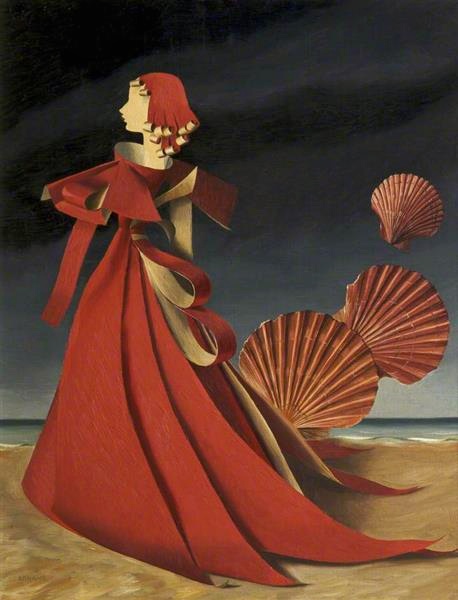
Born in Derby in 1898, Marion Adnams continued to live at the family home in Otter Street until her death in 1995 at the age of 96. She initially trained as a language teacher but after attending art classes at Derby School of Art she qualified as an art teacher in 1938. It was around this time that she started painting in a surrealist style.
The starting points for her paintings were often natural objects she had seen or picked up during walks. She studied these closely making numerous drawings before incorporating them into paintings. She later explained that it was at this point that they took on a surreal and mysterious life of their own as she played with their scale and setting. She described this transformation as a sort of resurrection, or bringing back to life, of dead or inanimate objects.
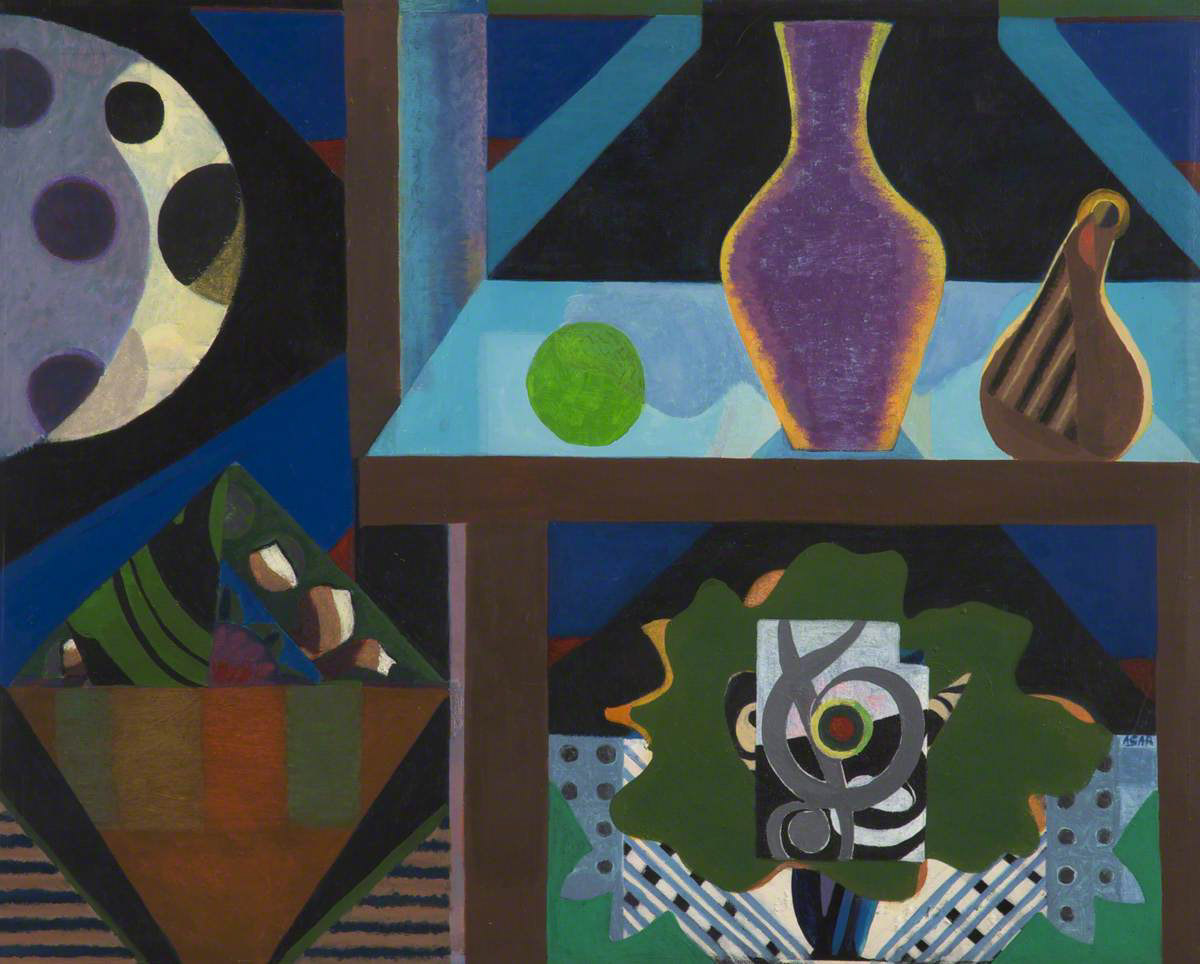
The artistic career of Eileen Agar spanned over 70 years, during which time she continually experimented with a wide range of techniques and subject matter. Born into a wealthy British-American family in Buenos Aires, she went to school in England and studied at the Slade School of Fine Art. She exhibited in surrealist exhibitions and was one of only two women to exhibit in the 1936 International Surrealist Exhibition in London. Using unrelated found objects in unexpected combinations Agar created collages, paintings, objects and photographs.
She said: ‘Very early on I liked doing collage and making objects, that sort of thing. It very often frees you rather than sticking to one thing. If you stick to one, just painting, you lose ideas. But if you play about with other things, they bring you into conflict with other ideas.’
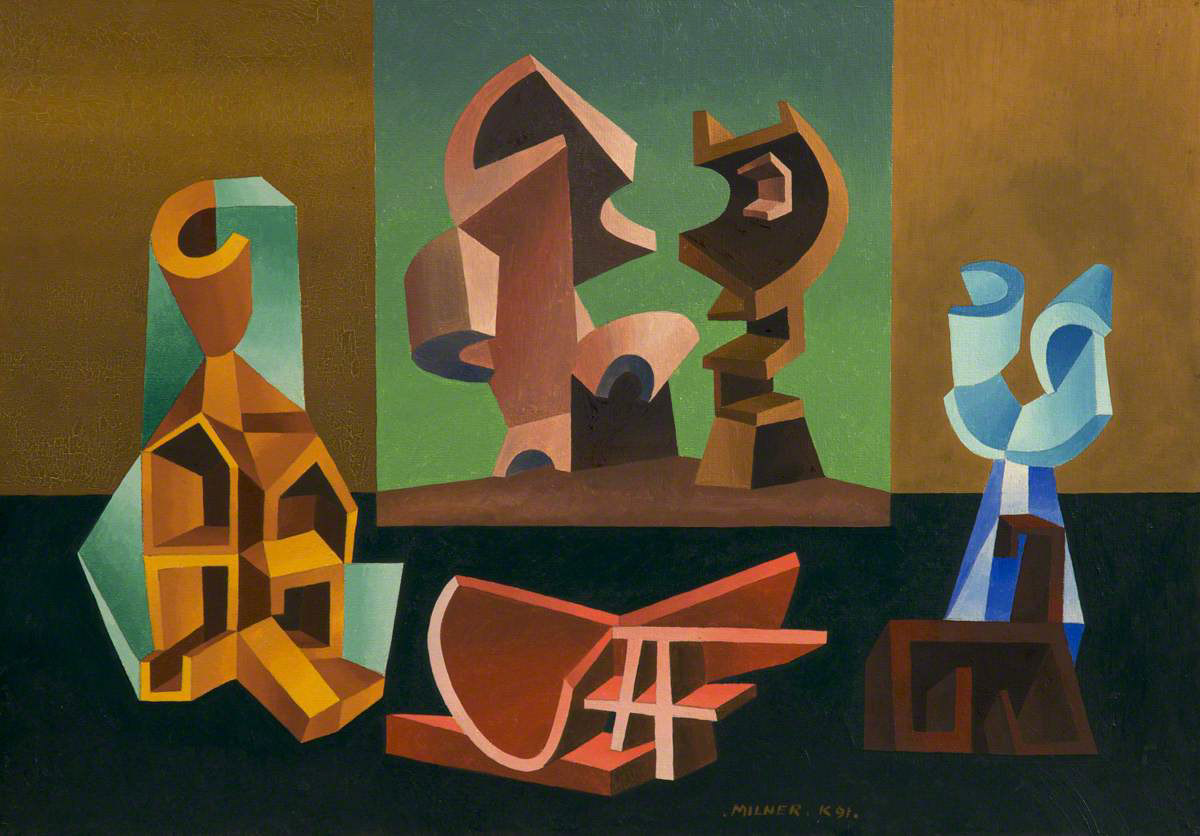
Allan Milner was born in Castleford, Yorkshire and attended the local grammar school where his art teacher had previously taught sculptor Henry Moore. He won scholarships to Leeds College of Art and the Royal College of Art in London. Milner had impressive colour and composition skills and embraced an abstract style which was cutting edge in the 1930s. He had his first exhibition at the Mayor Gallery in 1932 and he went on to exhibit at other galleries around London.
After serving in the Royal Navy during World War II, Milner moved with his family to the Isle of Man. Here he was a founding member of the Mannin Art Group where he exhibited alongside more traditional artists. He taught landscape painting and gave lessons on abstract art.
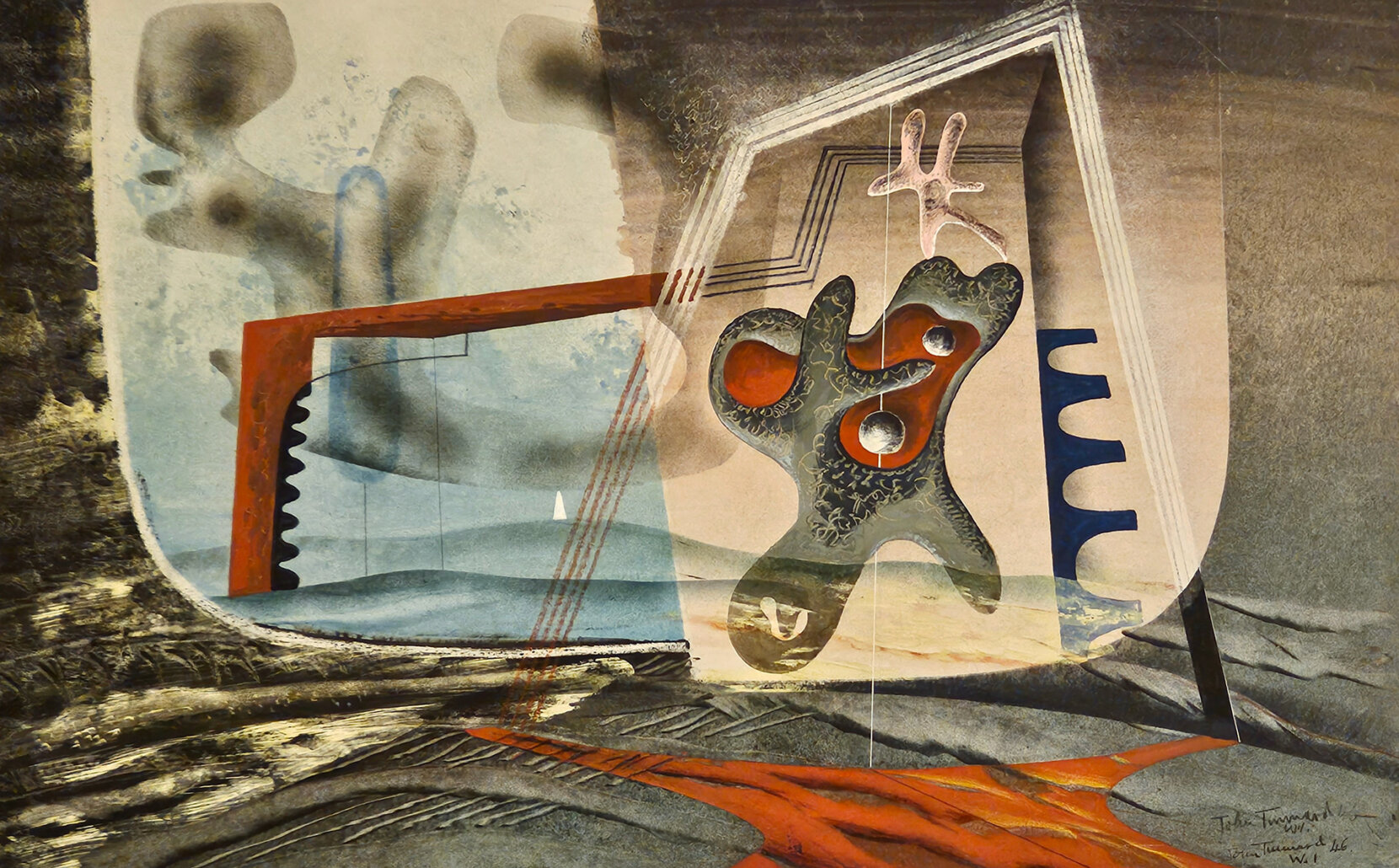
John Tunnard was born in Bedfordshire and initially trained in design at the Royal College of Art. After working as a textile designer in Manchester he taught design at the Central School of Arts and Crafts, London and took up painting seriously in 1928. His first group show was at the Royal Academy of Arts in 1931 and there followed a one man show at the Redfern Gallery in 1933. In the early 1930s Tunnard and his wife moved to Cornwall where they ran a business making printed silks.
Tunnard’s early works were fairly conventional landscapes and marine scenes but from the mid 1930s his style became more abstracted and on reading Herbert Read’s book Surrealism, his work moved dramatically away from traditional figuration. Whilst Tunnard never formally joined the surrealist movement, he did participate in several of the group’s exhibitions.
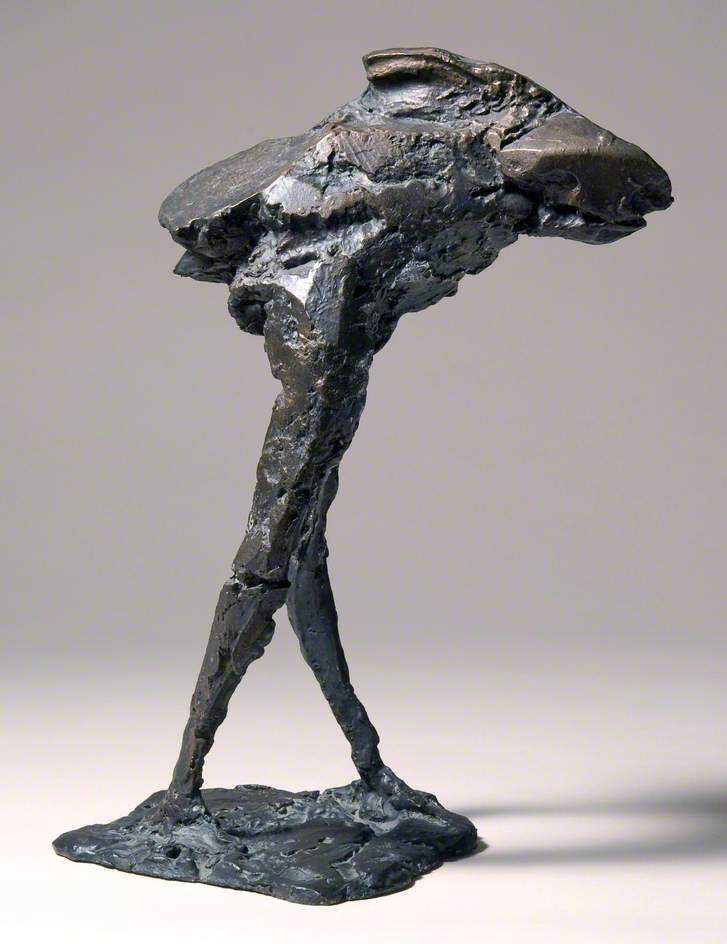
Elisabeth Frink was a sculptor and printmaker known for her preoccupation with naturalistic forms. She studied at the Guildford School of Art and the Chelsea School of Art. Her range of subject matter included men, birds, dogs, cats, horses and religious figures. She wanted to represent the world and express her thoughts through images that we understand and recognize as human and animal form.
Frink was not a surrealist, but her early work does share similar concerns to the aspects of surrealism particularly the hybridity of human and animals which can be seen in many surrealist works. She is best known for her bronze outdoor sculpture which has a distinctive cut and worked surface.
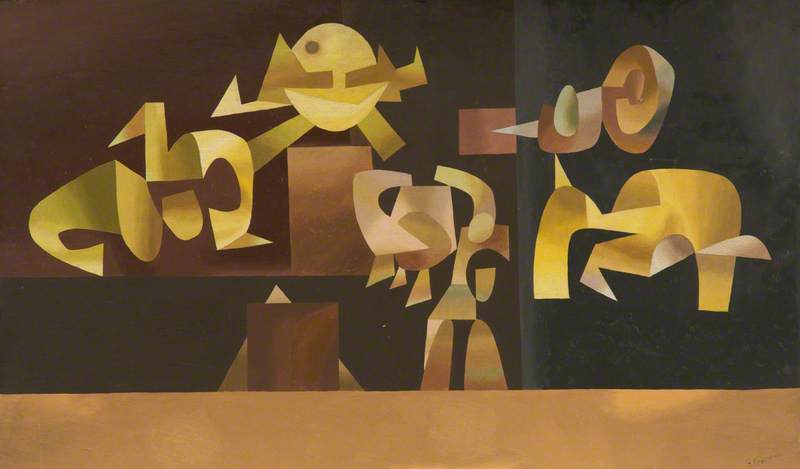
Very little is known about Ann Fordham. She moved to the Isle of Man in the 1950s with her mother and stepfather, the artist Allan Milner.
She exhibited abstract work alongside Milner and held his archive of work which she donated to the National Art Gallery on the Isle of Man.
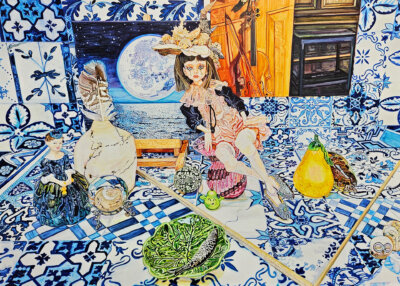
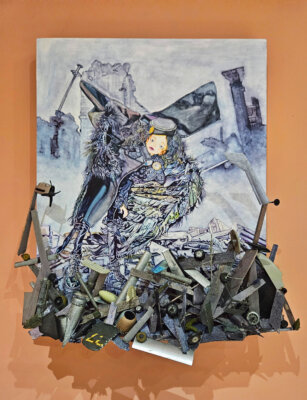
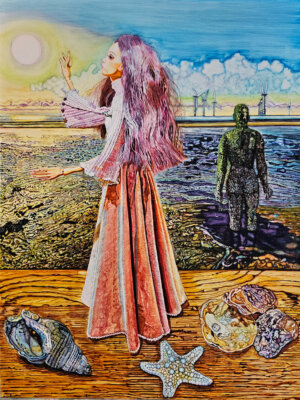
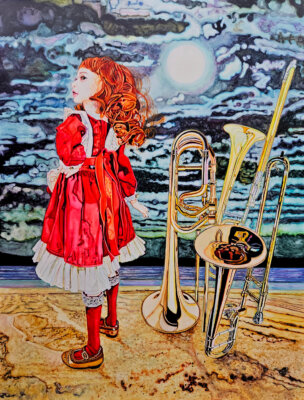
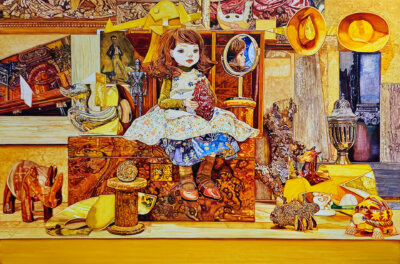
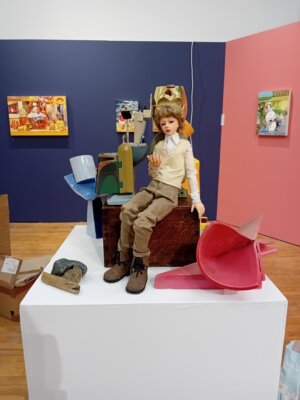
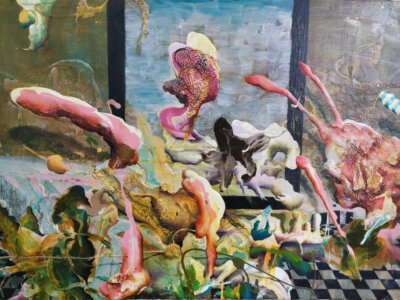
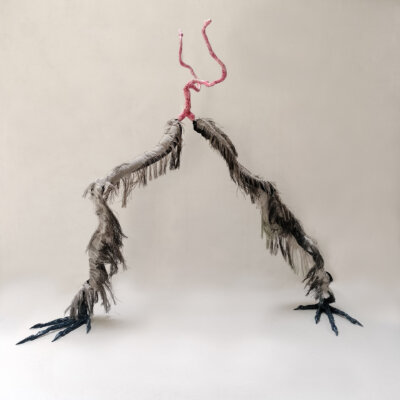
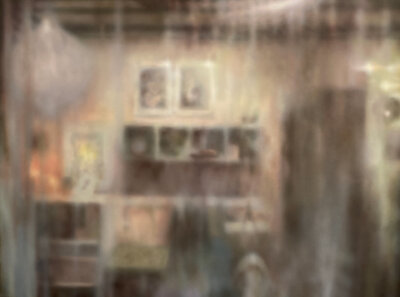
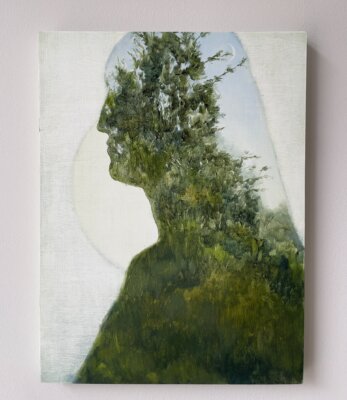
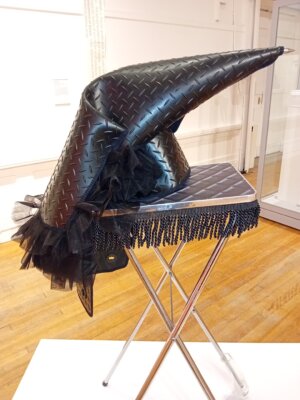

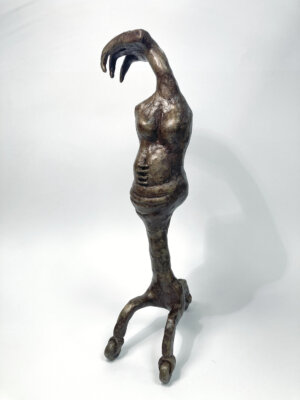
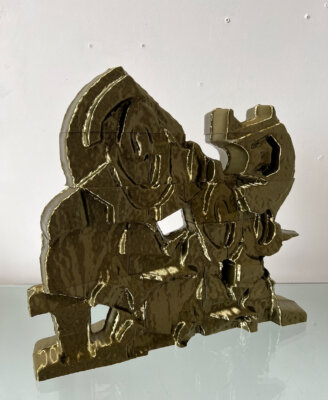
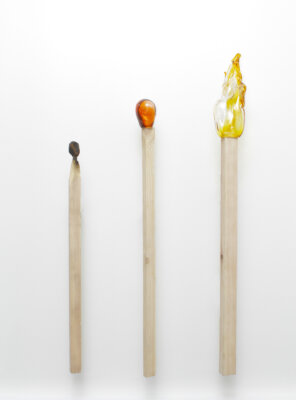
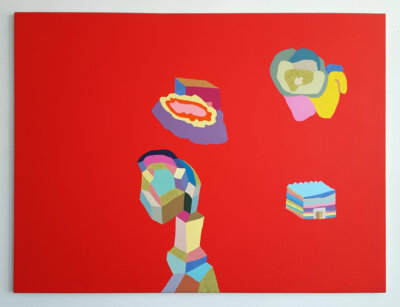

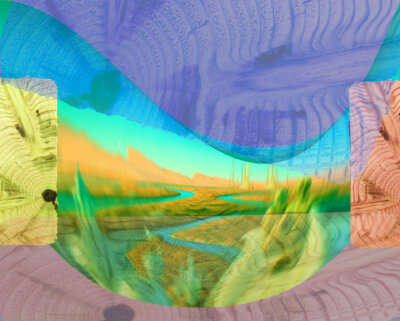
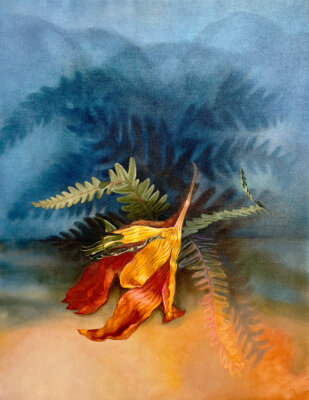
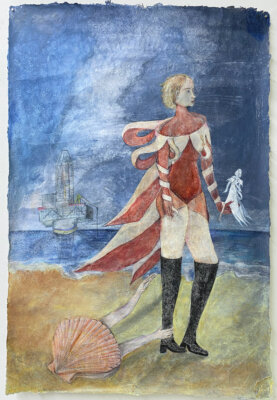

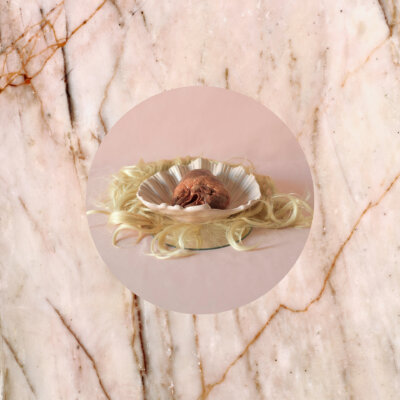
Sign up to the Salford Community Leisure mailing list and be the first to find out about our latest news, offers and forthcoming events across our services.